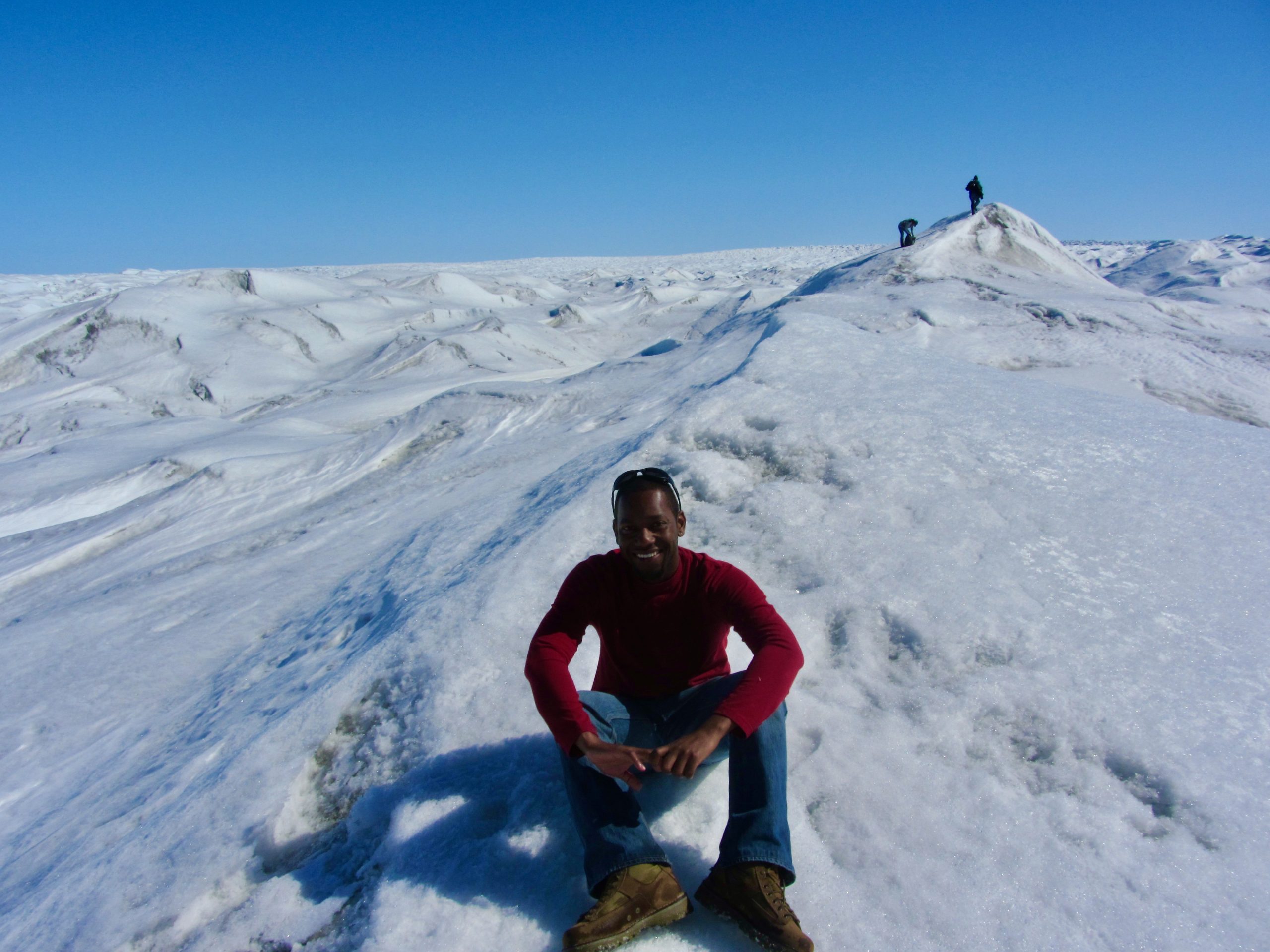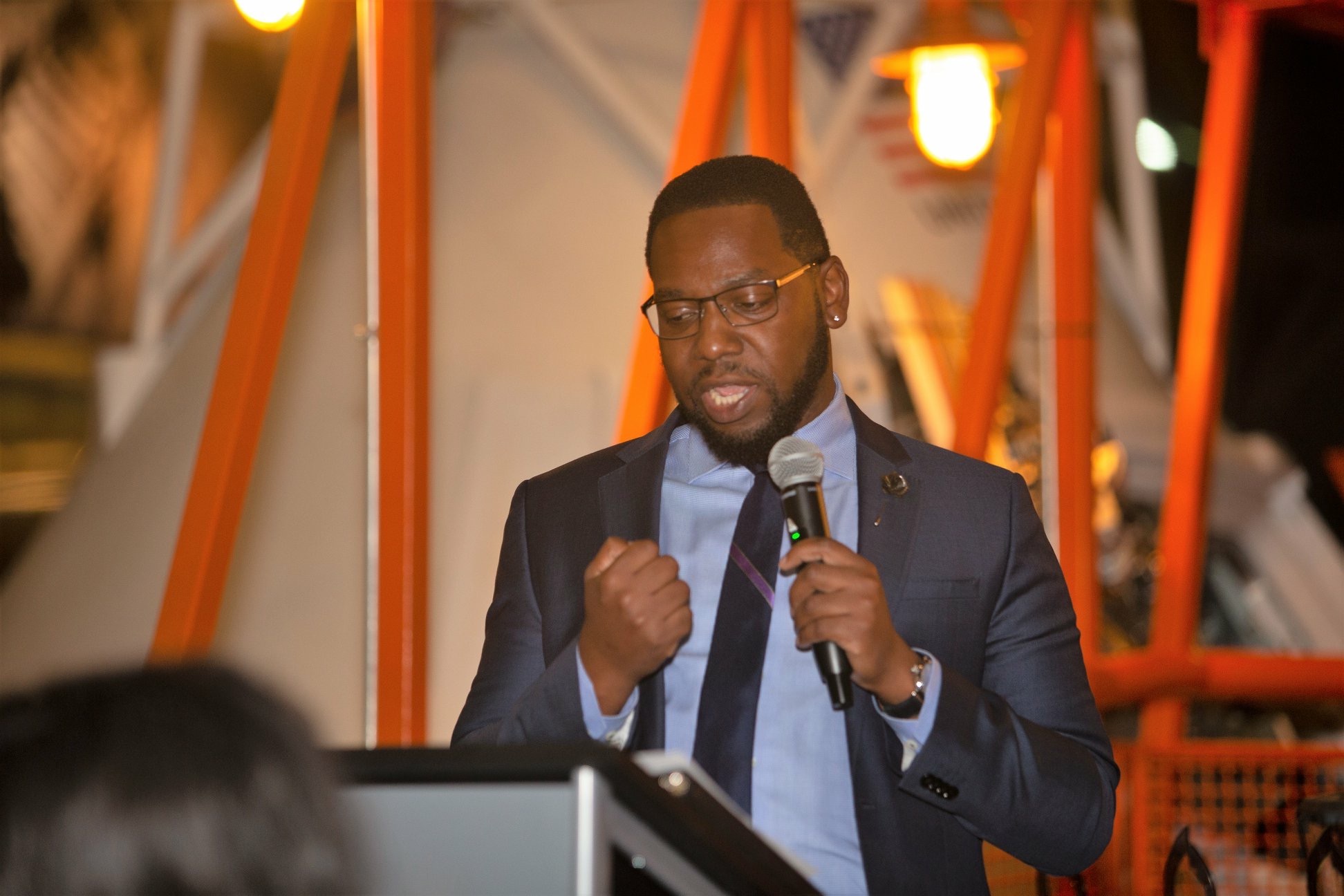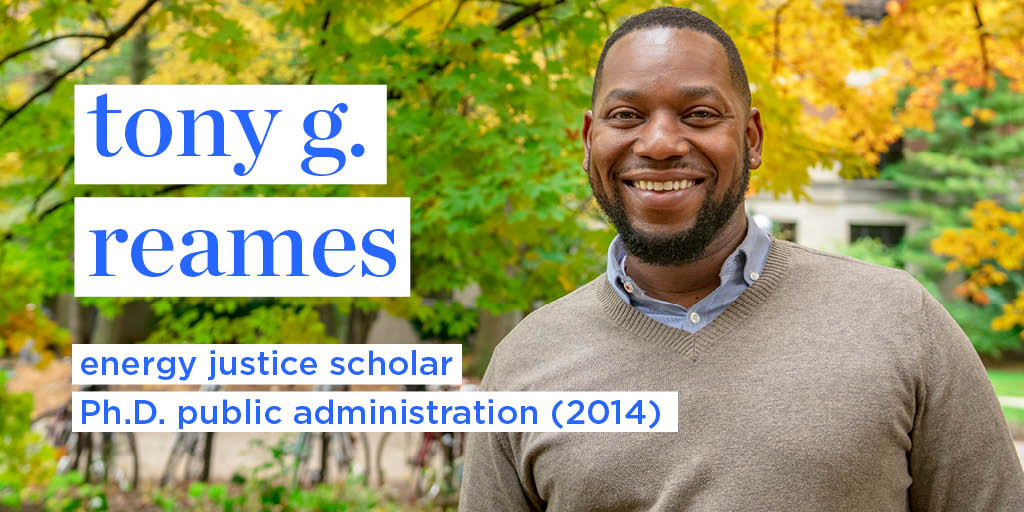
Why Tony’s a Hawk to Watch:
The most urgent issues our communities face — such as equitable access to clean energy — don’t exist in a vacuum. They’re tied to a vast network of forces and systemic factors. Which is why, for Tony Reames, the key to eliminating barriers to affordable, sustainability energy lies in addressing the interconnection of energy, race, place, and class. And through his energy justice activism and scholarship, he’s working to close the energy-efficiency gap.
Before landing on prestigious lists like the 2019 Grist 50 Fixers for his “game-changing” work and being named among the “40 Under 40” by Midwest Energy News and the Oakland County, Michigan Elite, Reames dived into research on energy efficiency for low-income households as a doctoral student in KU’s School of Public Affairs and Administration.
Now as an assistant professor in the School for Environment and Sustainability and director of the Urban Energy Justice Lab at the University of Michigan, Reames is exploring “spatial, racial, and socioeconomic disparities” in access to energy, with the goal of pinpointing solutions to break down inequities in energy access and affordability. His research has attracted interest from the National Science Foundation, which recently awarded him a 4 year, $2.1 million grant to study ways to reduce energy insecurity in Detroit. And on October 1, 2020, he was called on to testify before Congress about ways to generate equity through clean energy.
See what Reames had to say about the need for green scholarship, what he’d tell his 18-year-old self, the time he tasted the Greenland ice sheet, and how he hopes to continue championing energy democracy in 10 years time. Discover what makes him a Hawk to Watch.
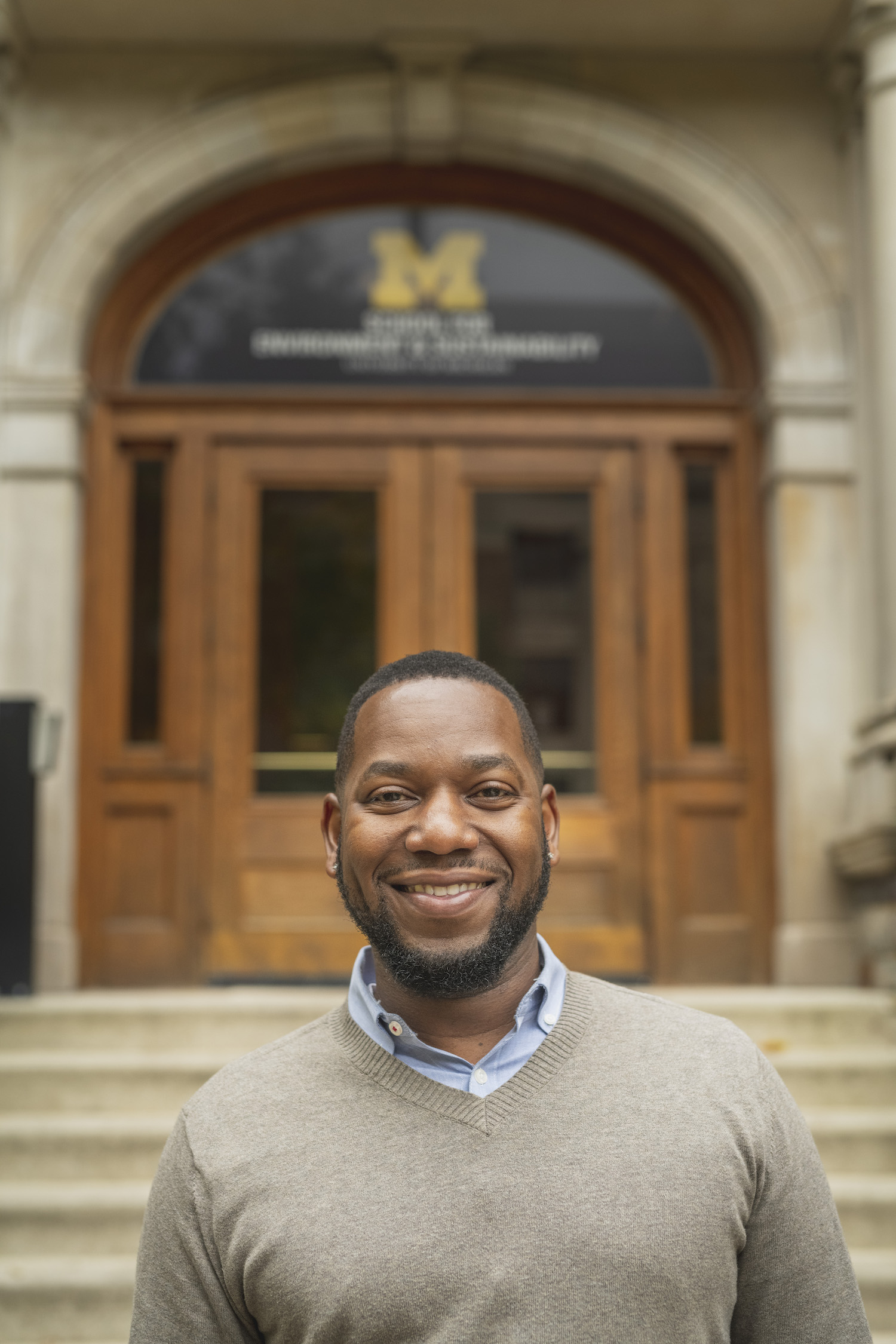
Tell us in a sentence or two what you do for a living:
I’m a scholar, teacher, activist. I’m an assistant professor at the University of Michigan School for Environment and Sustainability and Director of the Urban Energy Justice Lab.
How did you end up doing what you do?
Like most PhD students I had a ton of research ideas and my advisor Dr. Steven Maynard-Moody let me explore several of them until I landed on the one that was just right. He encouraged me to investigate what was happening with a unique initiative in Kansas City called the Green Impact Zone that was being funded by the federal American Recovery and Reinvestment Act of 2009 (aka ARRA, aka “the stimulus”) during the last economic recession. The idea was to geographically concentrate public and private dollars in a disinvested urban area of the city focusing on social, economic and environmental sustainability. It was through studying the implementation of the Green Impact Zone that the need to do deeper research into the intersections of energy, race, place and class became even more important to me and led me to entrench myself in the study of energy justice.
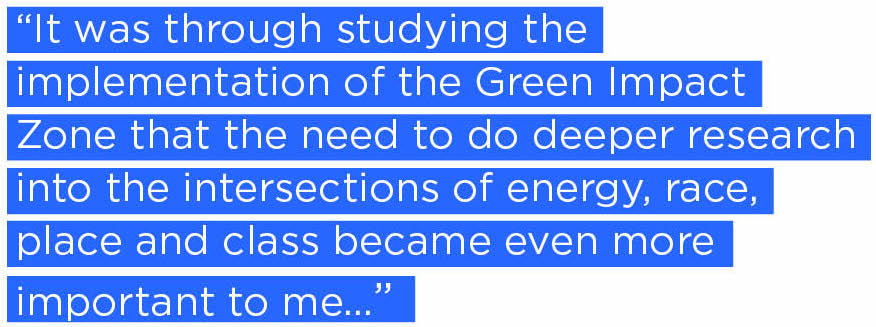
What do you feel is your biggest achievement so far?
I was just awarded the largest grant of my career thus far, a 4-year, $2.1 million grant from the National Science Foundation to study ways to reduce residential energy insecurity in Detroit through an integrated, case-management, data-driven, community-based approach. I’m so excited to be able to support the ongoing, meaningful work that is happening in Detroit and proud to report that nearly 40% of the grant’s direct costs are going straight to support community groups and residents.
What’s your lowest career moment and how did you pick yourself up and move on?
Rejection is a beast. Whether it is a paper rejected by a journal, a grant that does not get funded, or a student you have been recruiting that decides to go to another school, rejection is tough. As a brand-new PhD submitting your first paper from your dissertation that you have spent 4 to 5 years working and getting that first rejection letter with reviewers tearing your paper to shreds is devastating. However, in the grand scheme of life and a career, it is but one more stepping stone to better. I know this now, 6 years in. By the way, that first rejected paper has yet to be published.
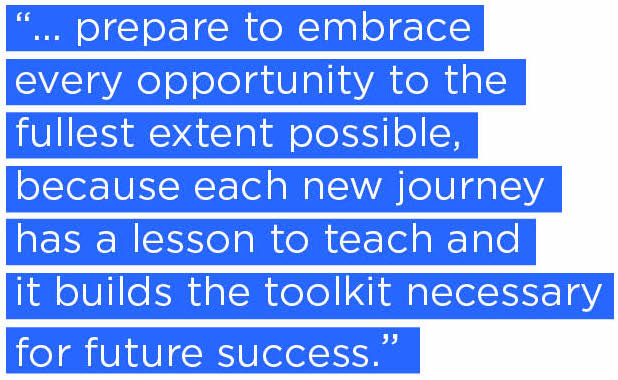
What do you know now that you wish you could tell your 18-year-old self?
I would tell 18-year-old Tony to prepare to embrace every opportunity to the fullest extent possible, because each new journey has a lesson to teach and it builds the toolkit necessary for future success.
Where do you hope to be in 10 years?
I would love to have a Center for Energy Justice where we focus on increasing equitable access to clean energy technology and energy efficient homes, improving energy affordability, and championing energy democracy and greater public participation in energy decision-making.
What’s your best career pro-tip?
Respect and protect the power of two important words: yes and no.
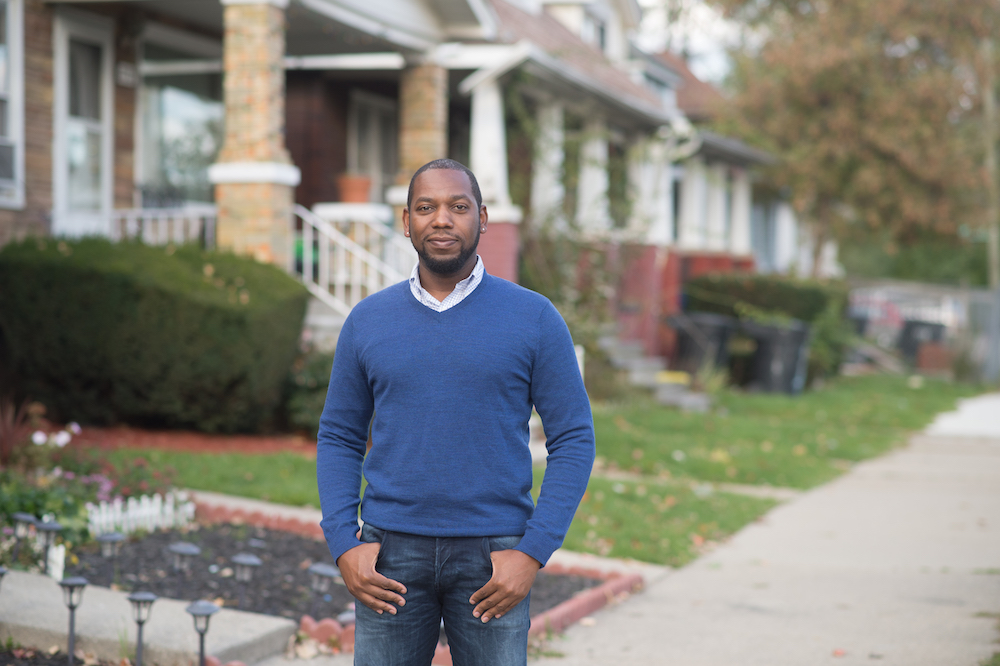
How did your KU degree prepare you for your current job?
I was a commuter from Kansas City, so the time I spent on campus and in Lawrence was very special to me. I made lifelong friends and mentors, participated in amazing fellowship programs, engaged with practitioners who were advancing their careers through our MPA program, and just a host of unforgettable moments. My PhD from the School of Public Affairs & Administration prepared me to think critically about our governance structures and the institutionalization of the production and persistence of the inequities that I research and teach my students about every day, and hopefully provide solutions to eradicate them.
What do you do after you’ve clocked out?
Summers in Michigan are pretty short, so I try to spend as much time outdoors as I can exploring local parks and nature trails, or riding bike. Pre-COVID, I enjoyed traveling to Mexico and the Caribbean.
What is a fun fact about you that surprises people?
I’ve tasted the Greenland ice sheet.
Meet more of our Hawks to Watch. For more information, visit the School of Public Affairs and Administration at the University of Kansas and the Urban Energy Justice Lab.
Hawks to Watch are disrupters. They’re poised for greatness, inspiring their colleagues and excelling in their professions. Basically, they’re killing it. Having recently graduated, they are just starting to leave their mark and we can’t wait to see how their story unfolds. These Jayhawks span all industries including business, non-profits, tech, healthcare, media, law and the arts.
